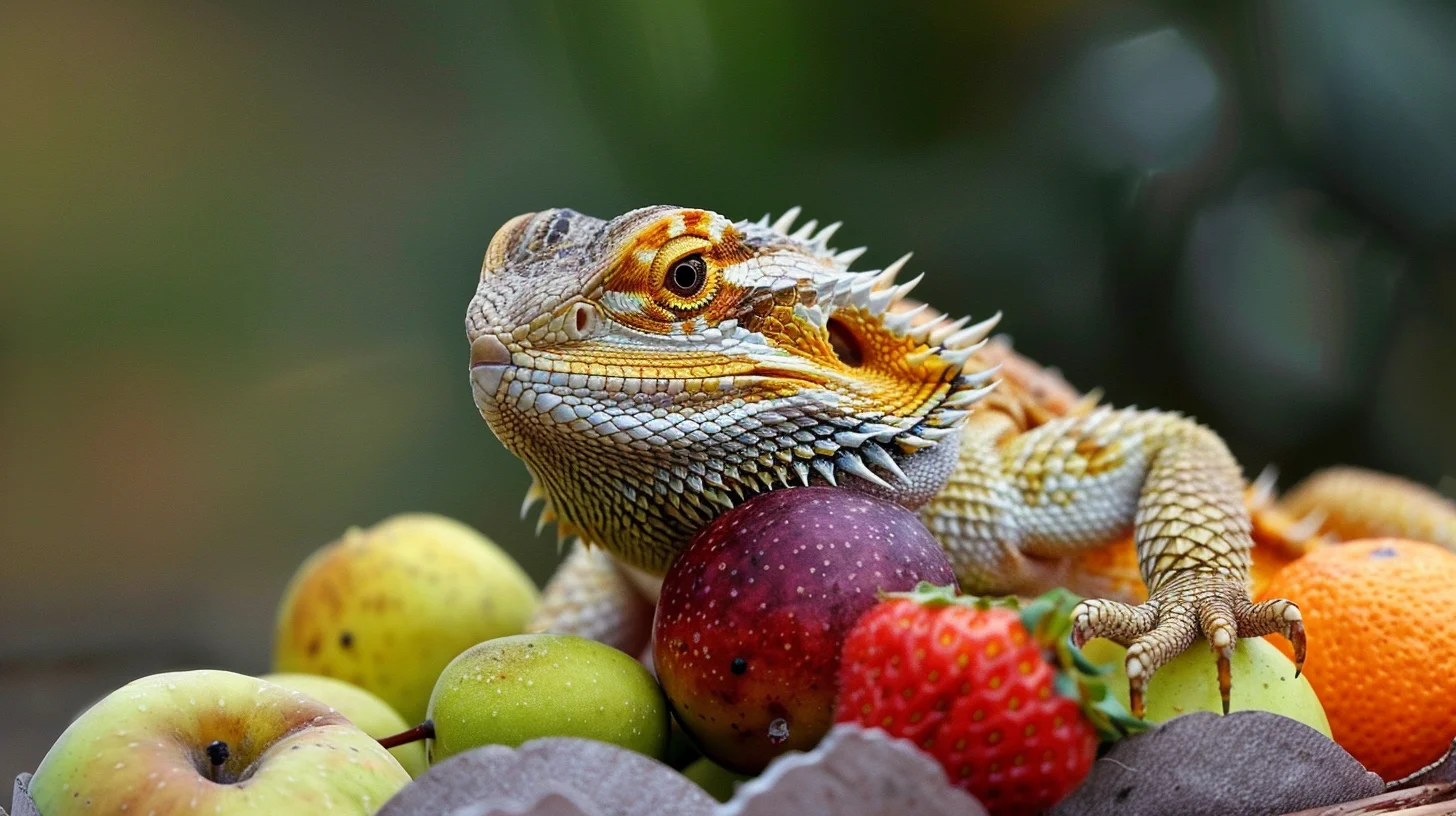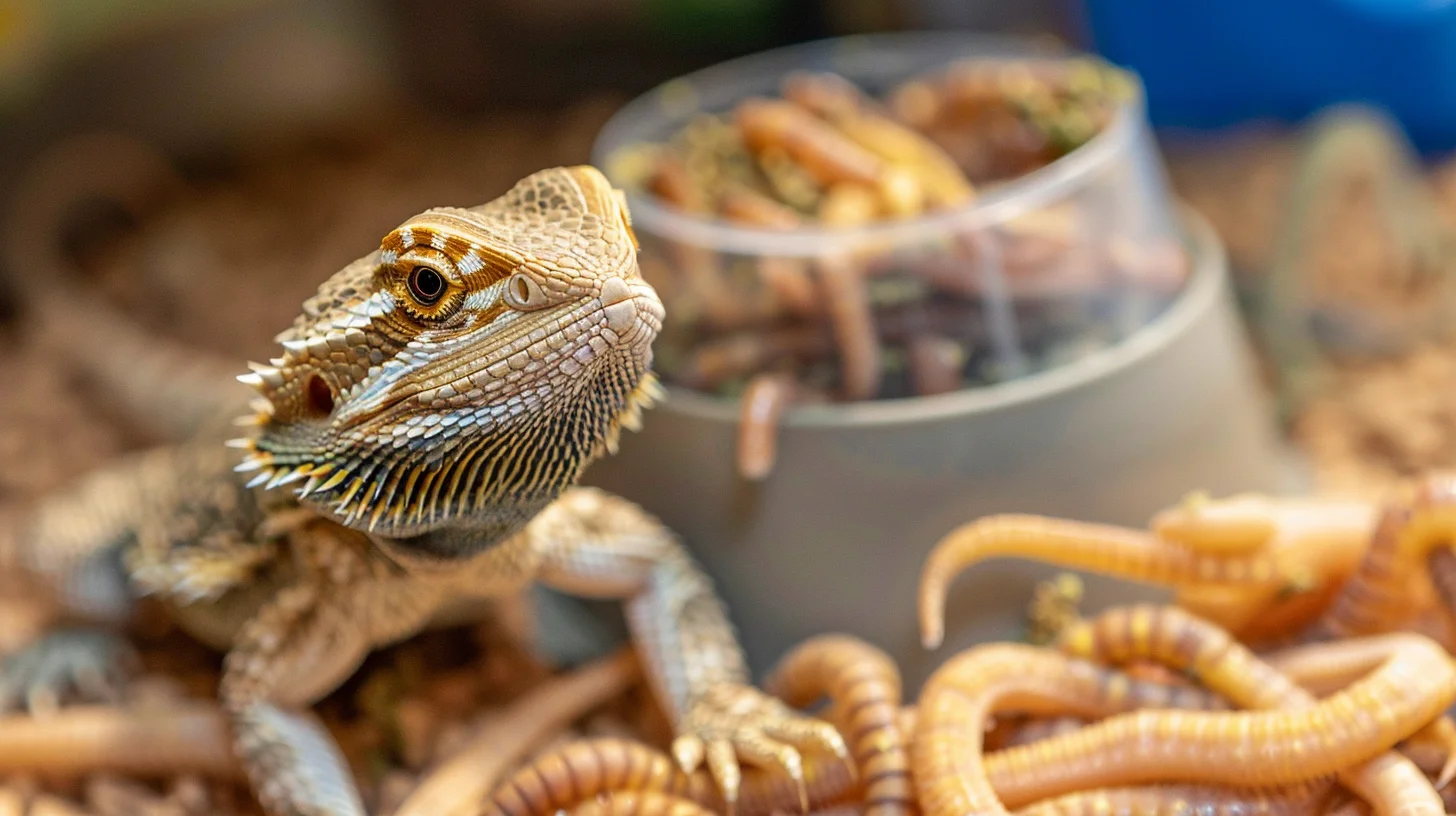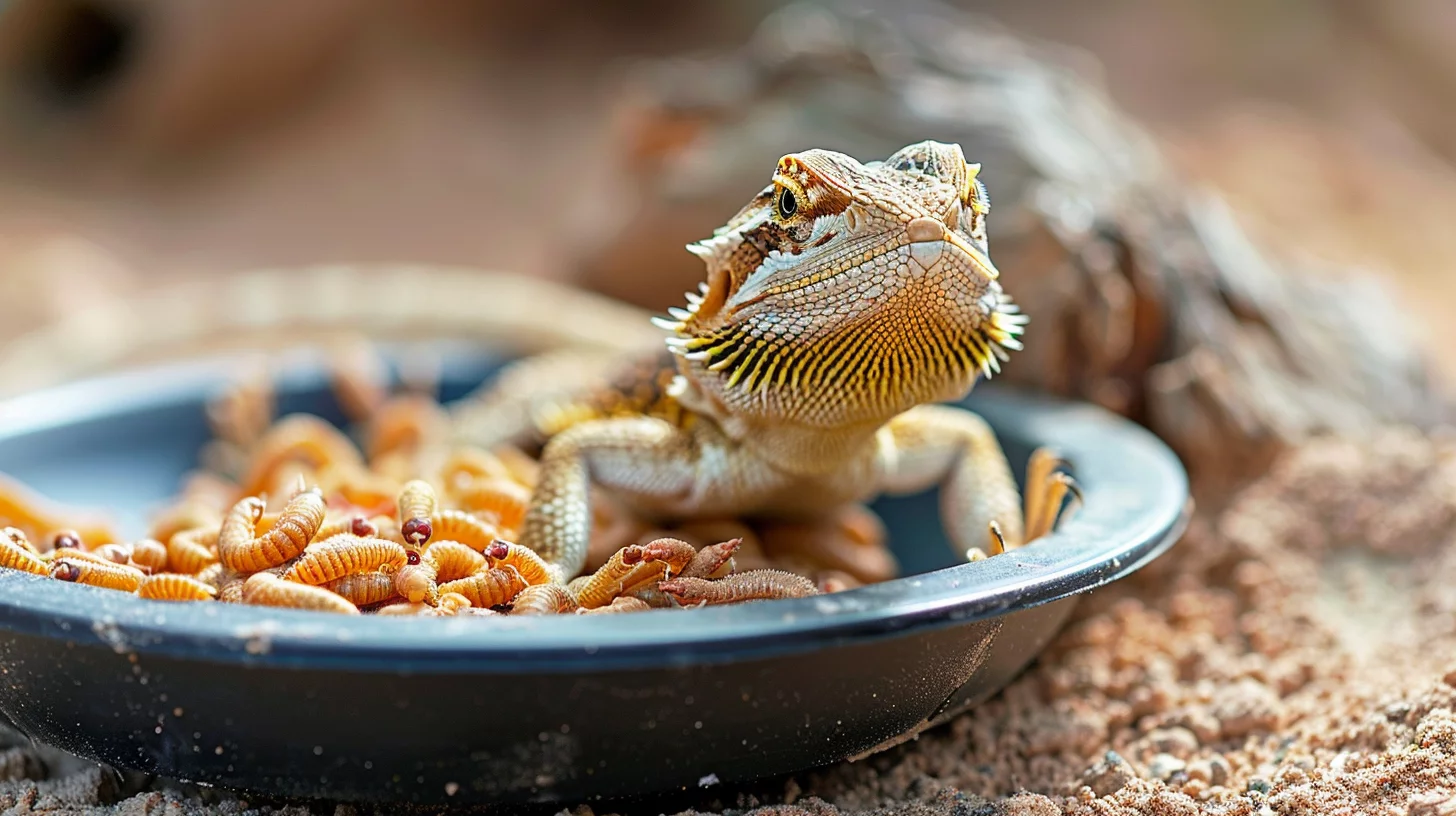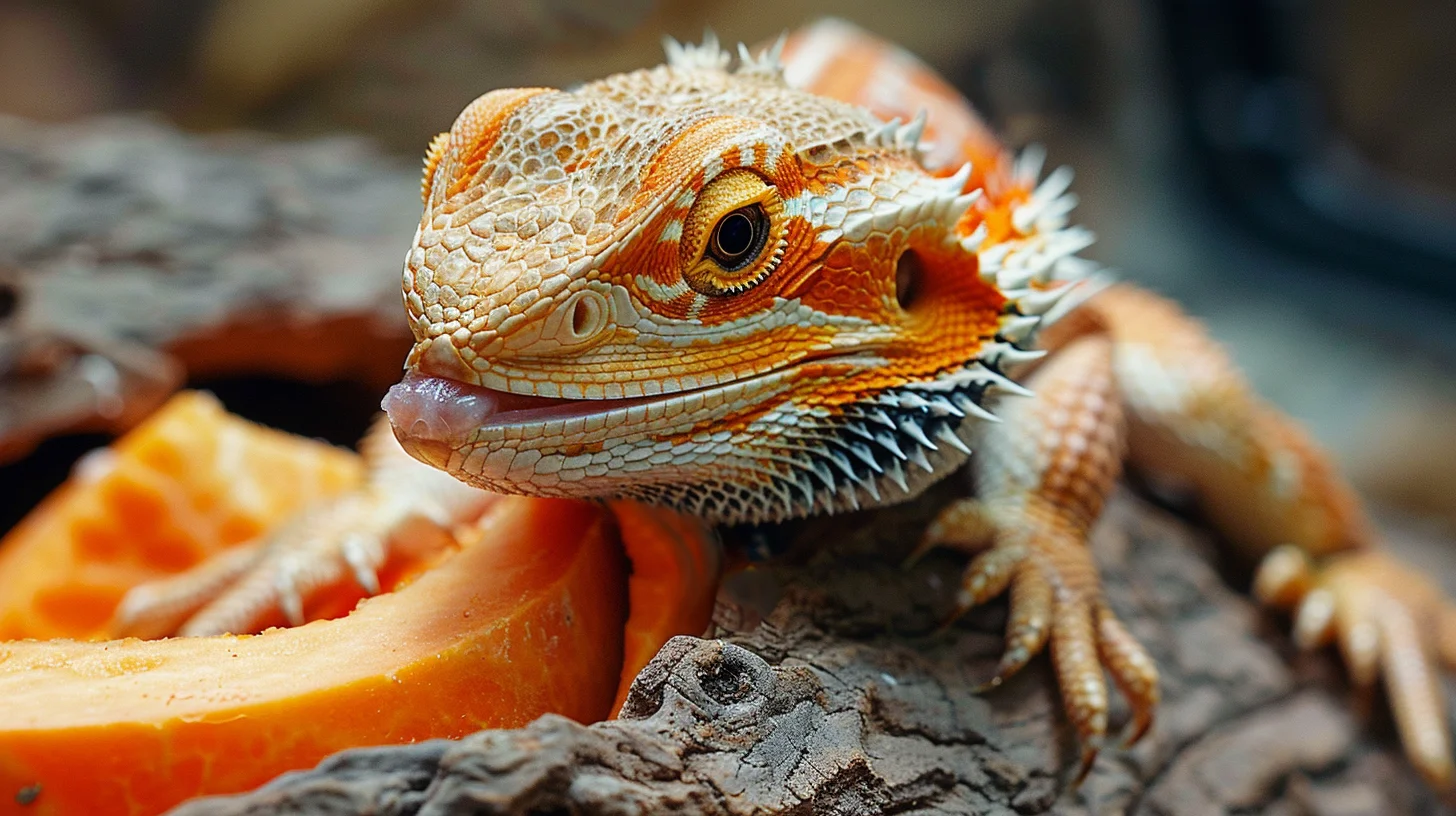Bearded dragons are fascinating and popular pets known for their friendly nature and unique appearance. As a responsible bearded dragon owner, it’s crucial to understand their dietary requirements to ensure they stay healthy and thrive. In this comprehensive guide, we’ll explore what fruits bearded dragons can eat, the role of fruits in their diet, and how to incorporate them safely.
Understanding Bearded Dragon Nutrition
Bearded dragons are omnivores, meaning they require a balanced diet consisting of both plant and animal matter. The ideal diet composition varies depending on the bearded dragon’s life stage:
| Life Stage | Age | Insects | Vegetables |
|---|---|---|---|
| Hatchlings | 0-6 months | 80% | 20% |
| Juveniles | 6-12 months | 50% | 50% |
| Adults | >12 months | 20% | 80% |
It’s essential to offer a variety of foods to ensure your bearded dragon receives all the necessary nutrients. Greens and vegetables should make up the majority of their diet, while insects provide protein and other essential nutrients[1][4].
Fruits Suitable for Bearded Dragons
While fruits should only be offered as occasional treats due to their high sugar content, they can add variety and enrichment to your bearded dragon’s diet. Some safe fruits for bearded dragons include[2][5]:
- Apples (without seeds)
- Berries (strawberries, raspberries, blueberries, blackberries)
- Grapes
- Melons (watermelon, honeydew, cantaloupe)
- Papayas
- Peaches
- Prickly pears
When offering fruits, it’s crucial to keep portion sizes small and limit the frequency to avoid health issues such as obesity and digestive problems. As a general rule, fruits should make up no more than 5-10% of your bearded dragon’s overall diet[1][4].
Fruits to Avoid Feeding Your Bearded Dragon
Some fruits are not suitable for bearded dragons and should be avoided altogether. These include[2][5]:
- Citrus fruits (oranges, lemons, limes, grapefruit) – too acidic
- Avocados – contain toxins harmful to bearded dragons
- Rhubarb – contains high levels of oxalates that can interfere with calcium absorption
- Fruits with large seeds or pits – can cause intestinal blockages
Preparing Fruits for Your Bearded Dragon
To ensure your bearded dragon can safely enjoy fruits, follow these preparation guidelines[3][5]:
- Wash fruits thoroughly to remove any pesticide residue or dirt.
- Remove seeds, pits, and stems, as they can be choking hazards or cause digestive issues.
- Cut fruits into bite-sized pieces to prevent choking and make it easier for your bearded dragon to eat.
- Consider mixing fruits with vegetables to create a balanced and nutritious meal.
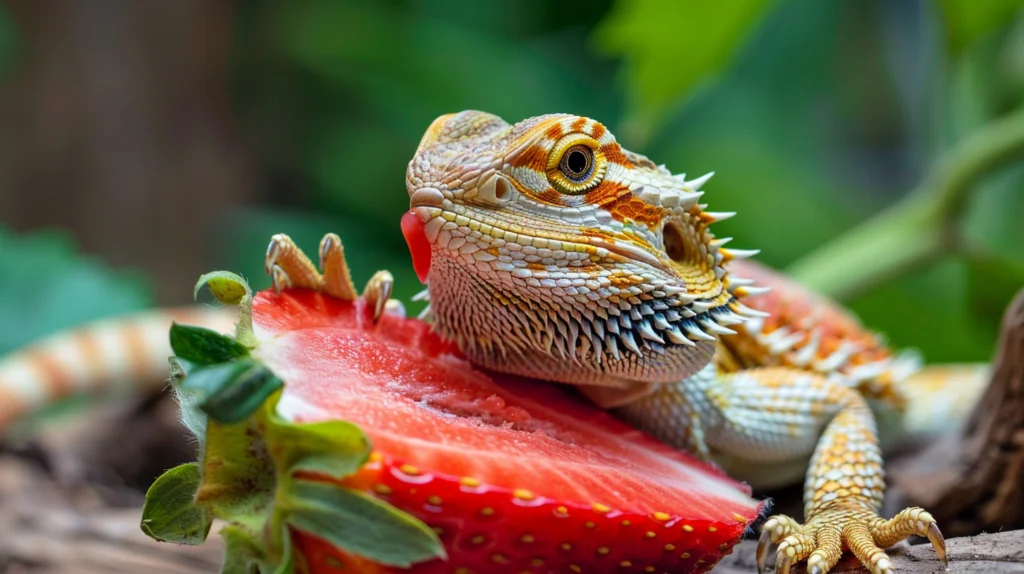
Incorporating Fruits into Your Bearded Dragon’s Diet
When introducing new fruits to your bearded dragon’s diet, do so gradually to allow their digestive system to adjust. Observe your pet’s reaction and watch for any signs of digestive upset, such as diarrhea or loss of appetite. If you notice any adverse effects, discontinue the fruit and consult with a reptile veterinarian[3].
You can offer fruits as occasional treats, mixed with greens and vegetables, or even use them as rewards during training sessions. Remember, moderation is key when it comes to feeding fruits to your bearded dragon.
Frequently Asked Questions
- Can bearded dragons eat dried fruits?
While dried fruits are not toxic to bearded dragons, they are not recommended due to their high sugar content and potential to cause digestive issues[2]. - How often should I feed my bearded dragon fruits?
Fruits should be offered sparingly, no more than once or twice a week, and in small quantities[1][4]. - Can baby bearded dragons eat fruits?
Baby bearded dragons should primarily eat insects and greens, with fruits being introduced gradually as they grow older[3]. - What should I do if my bearded dragon refuses to eat fruits?
Some bearded dragons may not show interest in fruits, which is perfectly normal. Focus on providing a balanced diet of greens, vegetables, and insects, and offer fruits occasionally as treats[3].
Conclusion
Fruits can be a tasty and enriching addition to your bearded dragon’s diet when offered in moderation. By understanding which fruits are safe, how to prepare them, and how to incorporate them into your pet’s meals, you can provide a well-rounded and nutritious diet. Remember, a balanced diet consisting primarily of greens, vegetables, and insects is essential for your bearded dragon’s health and well-being.
If you have any concerns about your bearded dragon’s diet or health, always consult with a reptile veterinarian for personalized advice and guidance.
